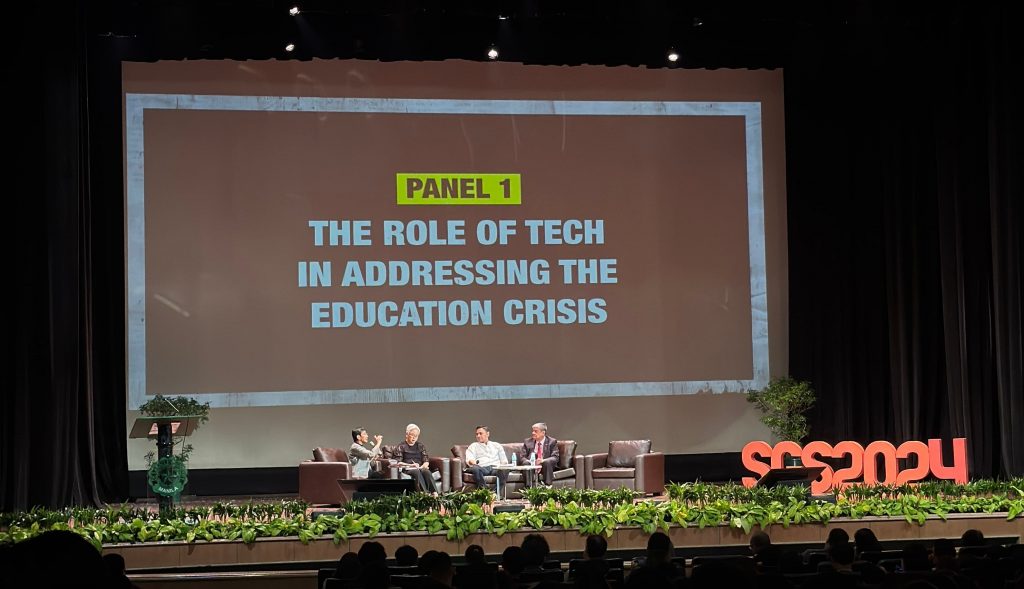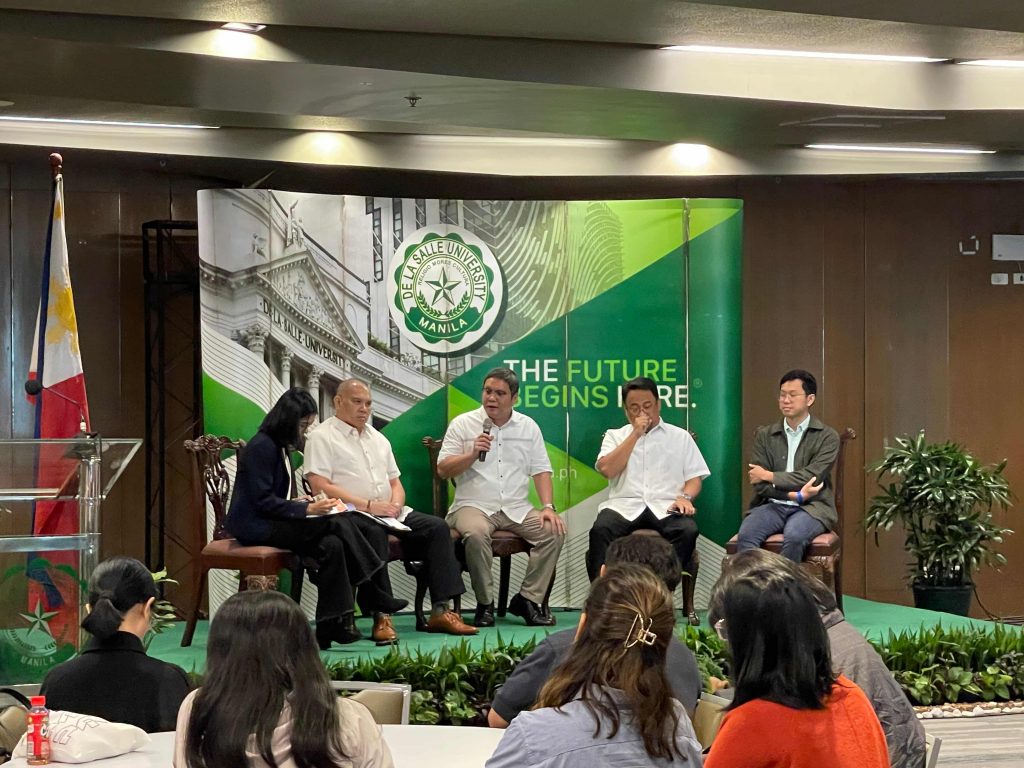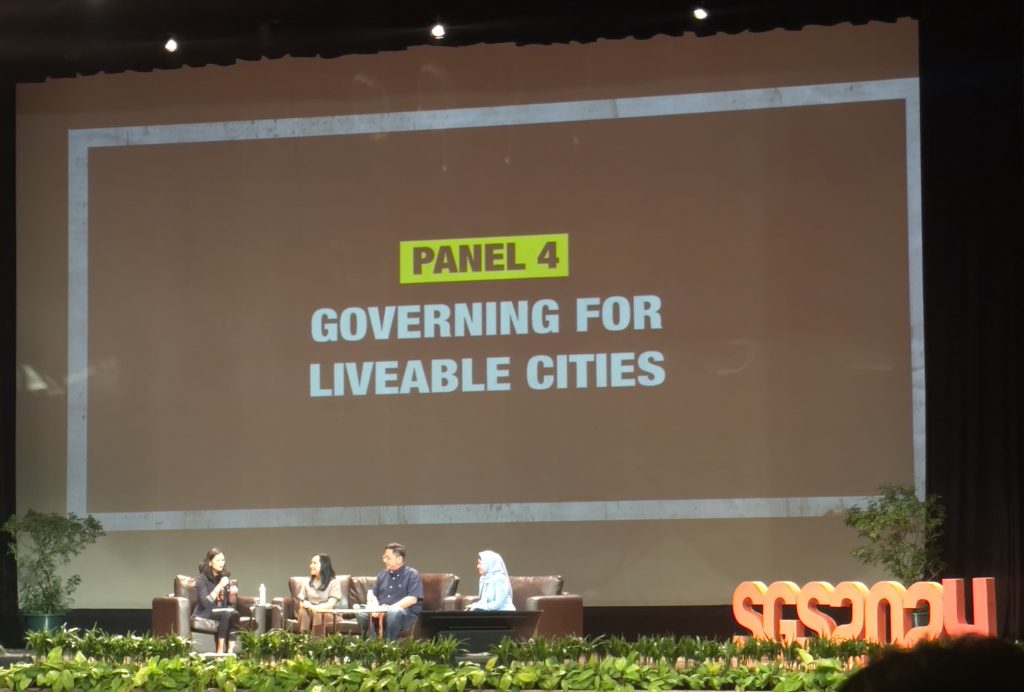Attending The Social Good Summit 2024, organized by Rappler, offered an immersive exploration of critical issues like the education crisis and climate-resilient urban development. The event highlighted the breadth of these challenges and the range of strategies and innovations being explored across the Philippines to address them. This post captures critical learnings from the summit and the questions these discussions left with me and many participants alike.
The Role of Technology in Education
The summit’s first panel on education, featuring panelists like Education Secretary Sonny Angara, Dr. Maria Mercedes from Ateneo’s Laboratory for the Learning Services, and Save the Children Philippines’ CEO Alberto Muyot, offered a timely critique of technology’s role in addressing educational challenges.

Dr. Mercedes observed that children’s increased screen time has begun replacing traditional outdoor play, potentially impacting their physical and social development. Her point raised broader questions about our approach to technology’s role in children’s lives, touching on a larger concern beyond simply “too much screen time.” Rather than seeing screen use as a standalone issue, it reflects a lack of viable alternatives: How do we support families in engaging children constructively without confining them to digital devices without accessible real-world spaces for learning and play?
This perspective highlights how the educational crisis intersects with the scarcity of accessible, safe spaces where children can learn and explore. In countries like the Netherlands, parks, libraries, and community centers are fundamental components of the urban fabric, providing environments that enrich childhood learning. By contrast, in the Philippines, limited or underfunded public spaces restrict children’s opportunities for development outside the screen. This scarcity of safe and accessible spaces presents a significant challenge for parents and policymakers, who are called to address these gaps in ways that can provide children with diverse learning experiences and mitigate reliance on technology as a substitute.
Content Creation for Social Impact
Another memorable panel addressed Content Creation for Social Good, with speakers like Arshie Larga offering insights on the evolving role of influencers as educators and advocates. Arshie underscored that his audience increasingly seeks meaningful, educational content—a shift that reflects a demand for substance over mere entertainment. This pivot is a testament to influencers’ potential impact on public awareness, particularly when they responsibly leverage their platforms.
His reflections resonated deeply, reminding us that expertise and credibility are paramount, especially when tackling complex social issues. As someone who uses social media for advocacy, I found this panel a compelling reminder of the responsibility that comes with influence. This approach is essential in building trust and advancing meaningful discourse, especially within communities eager for credible sources of information.
Building Climate-Resilient Cities: A Collaborative Vision
The breakout session on Climate-Resilient Cities presented a powerful case for collaboration across stakeholders such as government, civil society, academe, and the private sector. With insights from representatives of the Office of the Civil Defense, Quezon City LGU, Placemaking Pilipinas, and UPRI Executive Director Dr. Mahar Lagmay, the discussion highlighted the intricacies of climate adaptation in urban settings. Dr. Lagmay’s call for “open everything”—open data, open resources, open knowledge—stressed that transparency and data accessibility are crucial in empowering communities to build resilience. This session underscored the need for science-based decision-making and inclusive community engagement, aligning closely with our mission at OpenStreetMap.

As participants, we joined a placemaking activity where each group envisioned their ideal city. Our group’s vision—a city that is sustainable, green, and smart—captured a collective aspiration for a future where communities are equipped and empowered to thrive despite environmental challenges.
Governing Liveable Cities: Insights from Local Leaders
The final panel on governing liveable cities was another highlight, featuring mayors like Mayor Joy Belmonte of Quezon City, who shared how their cities are innovating to improve urban life. Mayor Joy’s initiatives, including the Right to Care card and Libreng Sakay, reflect a governance approach that prioritizes accessibility and inclusivity, reaching those who need support the most. Having lived in Quezon City, I’ve witnessed firsthand how these programs have shaped a more progressive, community-centered environment, reinforcing that transformative leadership can create lasting, meaningful change.

Reflections and Takeaways
The Social Good Summit 2024 served as a reminder of the interconnected nature of today’s challenges. Whether addressing educational disparities, leveraging content creation for social impact, or fostering urban resilience, the solutions presented at this summit underscored the power of collective action, innovative thinking, and open collaboration. These conversations highlighted the importance of aligning our work with the values of transparency, inclusivity, and empowerment to drive meaningful progress.
Thank you to Rappler for bringing these urgent issues to the forefront and facilitating such valuable exchanges.
